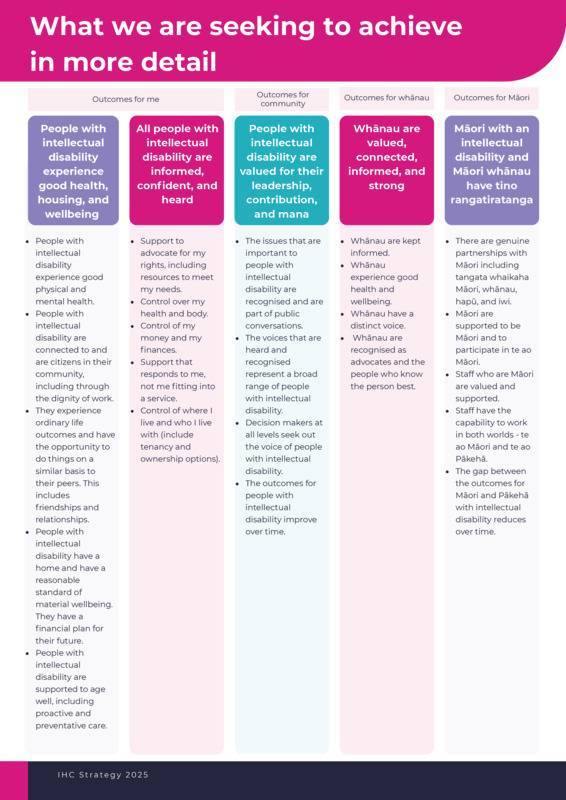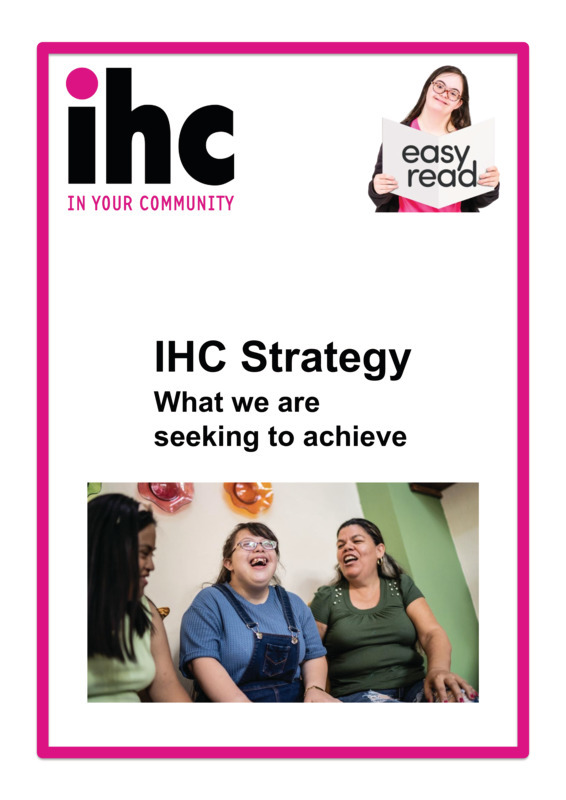People with intellectual disability experience good health, housing, and wellbeing
- People with intellectual disability experience good physical and mental health.
- People with intellectual disability are connected to and are citizens in their community, including through the dignity of work.
- They experience ordinary life outcomes and have the opportunity to do things on a similar basis to their peers. This includes friendships and relationships.
- People with intellectual disability have a home and have a reasonable standard of material wellbeing. They have a financial plan for their future.
- People with intellectual disability are supported to age well, including proactive and preventative care.
All people with intellectual disability are informed, confident, and heard
- Support to advocate for my rights, including resources to meet my needs.
- Control over my health and body.
- Control of my money and my finances.
- Support that responds to me, not me fitting into a service.
- Control of where I live and who I live with (include tenancy and ownership options).
People with intellectual disability are valued for their leadership, contribution, and mana
- The issues that are important to people with intellectual disability are recognised and are part of public conversations.
- The voices that are heard and recognised represent a broad range of people with intellectual disability.
- Decision makers at all levels seek out the voice of people with intellectual disability.
- The outcomes for people with intellectual disability improve over time.
Whānau are valued, connected, informed, and strong
- Whānau are kept informed.
- Whānau experience good health and wellbeing.
- Whānau have a distinct voice.
- Whānau are recognised as advocates and the people who know the person best.
Māori with an intellectual disability and Māori whānau have tino rangatiratanga
- There are genuine partnerships with Māori including tangata whaikaha Māori, whānau, hapū, and iwi.
- Māori are supported to be Māori and to participate in te ao Māori.
- Staff who are Māori are valued and supported.
- Staff have the capability to work in both worlds - te ao Māori and te ao Pākehā.
- The gap between the outcomes for Māori and Pākehā with intellectual disability reduces over time.


What we are seeking to achieve in more detail
Download


Easy Read: What we are seeking to achieve
Download